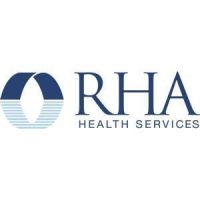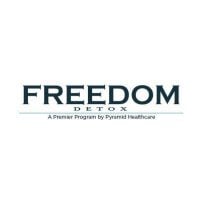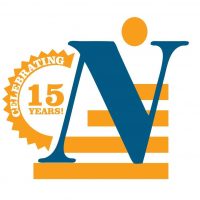
Hominy Creek Sober Home for Women
Drug Rehab Center in Asheville, North Carolina
- Substance Abuse
- Opioid Addiction
- Drug Addiction
- Alcoholism
Hominy Creek Sober Home for Women is a residential treatment center for women with addiction and substance abuse, offering a range of care options, individual and group therapy, and 24/7 support to promote a safe and healthy environment conducive to healing.
Multiple patients have reported Hominy Creek Sober Home for Women as permanently closed.
Research other rehabs in Asheville, North Carolina, or get help finding an open facility.
Our experts will find you an alternative facility.
(888) 674-0062 24/7 Free, Confidential, Expert HotlineAbout Hominy Creek Sober Home for Women in North Carolina
Hominy Creek Sober Home for Women is an Asheville, NC-based residential treatment center for women struggling with addiction and substance abuse. This sober living home specializes in treating alcohol abuse, opioid addiction, and substance abuse. The facility offers a comprehensive range of care options, including drug rehab, halfway housing, and residential long-term care programs. Their approach to recovery focuses on individual therapy, couples therapy, family therapy, and group therapy, as well as providing a supportive, safe, and healthy environment conducive to healing. The staff at Hominy Creek is dedicated to helping every woman in their care to reach their sobriety goals and live a life of fulfillment and purpose.
Hominy Creek Sober Home for Women recognizes that addiction is a complex illness and that each person's approach to recovery will differ. They strive to offer the highest level of care for their residents and make sure that everyone feels comfortable and supported throughout their treatment journey. They prioritize creating a safe and compassionate atmosphere and provide round-the-clock supervision and support from their experienced, professional staff. The aim is to provide their residents with the tools and resources necessary to lead a life free from addiction.
Genders
Ages
Modality
Additional
Conditions and Issues Treated
A combination of treatments is often needed to treat drug abuse. Some addictions can be treated with counseling and support groups. In other cases, drug abuse can lead to a medical problem and require medical treatment. Treatment for drug addiction typically combines counseling and psychotherapy with medication and behavioral therapies.
A combination of treatments is often needed to treat drug abuse issues effectively. In the case of drug abuse, there is no easy answer or one-size-fits-all cure.
Opioid addiction has become a significant health problem in the United States. In 2015, there were 91 opioid overdose-related deaths per day, with a substantial increase in mortality rate in 2014.
When opioid addiction has reached a point where a person’s life becomes unmanageable, treatment options are available to help them get sober. Treatment that includes medical care with medications and counseling can help a user transition into sobriety.
Levels of Care Offered
This center offers a variety of custom treatment tailored to individual recovery. Currently available are Drug Rehab, Residential, Sober-Living / Half-Way, with additional therapies available as listed below.
Sober living homes, also known as halfway houses, provide recovering people with a structured drug-free environment to live in that bridges inpatient rehab and the much less structured world of outpatient rehab. Sober living homes offer a person early in recovery the opportunity to practice recovery skills in a safe environment.
The atmosphere in sober living homes is less restrictive than in an inpatient facility. Members have to follow many rules, including not drinking and using drugs and paying rent and bills. There is no limit to the period of stay. As long as you stay, you should follow the rules because it’s the opportunity for individual and group sobriety.
Residential treatment programs are those that offer housing and meals in addition to substance abuse treatment. Rehab facilities that offer residential treatment allow patients to focus solely on recovery, in an environment totally separate from their lives. Some rehab centers specialize in short-term residential treatment (a few days to a week or two), while others solely provide treatment on a long-term basis (several weeks to months). Some offer both, and tailor treatment to the patient’s individual requirements.
Therapies & Programs
Because no single treatment is effective for all addicts, the goal of treatment and therapy should be to figure out what works best for each individual. Tolerance and withdrawal levels differ from person to person, affecting the treatment intensity required. Addiction treatment should aim to help addicts develop healthy coping mechanisms for dealing with their addiction and its underlying causes.
Couples therapy works with clients and significant others in a professional capacity to improve relationship dynamics. This can be helpful for addicts who are trying to marry the idea of recovery into their work, family, social lives – any aspect that has to do with relationships. Through counseling sessions, addicts will have an opportunity to talk about their addiction with professional partners.
Family therapy is beneficial for people who are in addiction treatment services because it offers addicts the opportunity to work with their family members to better understand what led them to make choices that contributed to their addiction.
This type of therapy helps family members reach a deeper understanding of how they can best support their loved one during recovery. It also helps the addict better understand their own motivations and triggers that led them to turn to substance abuse.
Family therapy can help addicts in the following ways:
- Assists family members in processing difficult feelings so they don’t blame or resent recovering addicts
- Assists family members in understanding how addiction has impacted the addict and everyone who is involved with them
- Allows the addict to take responsibility for their actions, while encouraging improved communication skills
- Helps family members understand how to best support an individual in recovery so addicts don’t relapse again.
Group therapy can help build a stronger support system and give addicts in Asheville, NC insight into their addiction that they gain through shared conversations. Group therapy occurs in a controlled group environment, exclusive of one on one meetings. This makes it safer for patients to feel comfortable sharing the struggles they’re going through and gaining perspective.
Additional Details
Specifics, location, and helpful extra information.
Asheville, North Carolina 28806 Phone Number(912) 665-0722 Meta DetailsUpdated November 25, 2023
Staff Verified
Hominy Creek Sober Home for Women Patient Reviews
There are no reviews yet. Be the first one to write one.
Asheville, North Carolina Addiction Information
North Carolina ranks 29th in the nation for overall substance abuse. Many of the drugs abused in the state are illicit, and many of these are opioids. Prescription opioids are readily available due to the high rates of medical workers prescribing them. The number of prescriptions has increased tenfold since the 1980's. Opioid overdoses are the most common type of death in North Carolina.
The drug addiction problem in Asheville, North Carolina, is relatively bad. About 7.4% of Asheville residents aged 12 or older reported using illicit drugs. Additionally, nearly 12% of Asheville residents reported misusing prescription drugs in the past year. The most commonly used drugs are marijuana, cocaine, and heroin. Asheville, North Carolina, is a vibrant city with plenty to do. There are plenty of local and nearby rehab centers for treatment.
Treatment in Nearby Cities
- Southern Pines, NC (183.2 mi.)
- Tarboro, NC (285.5 mi.)
- Elkin, NC (109.0 mi.)
- Snow Hill, NC (277.3 mi.)
- Rose Hill, NC (264.0 mi.)
Centers near Hominy Creek Sober Home for Women
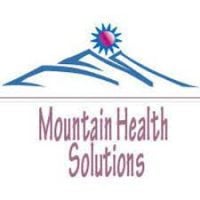
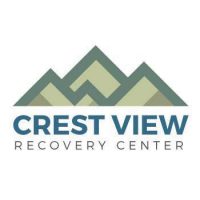
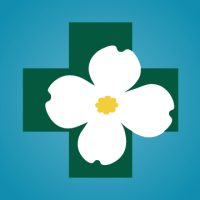
The facility name, logo and brand are the property and registered trademarks of Hominy Creek Sober Home for Women, and are being used for identification and informational purposes only. Use of these names, logos and brands shall not imply endorsement. RehabNow.org is not affiliated with or sponsored by Hominy Creek Sober Home for Women.

